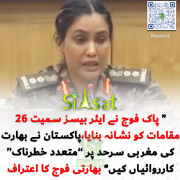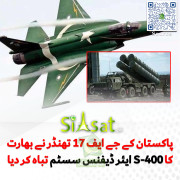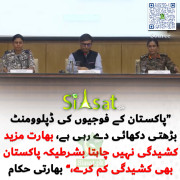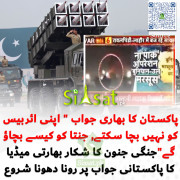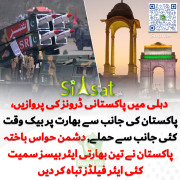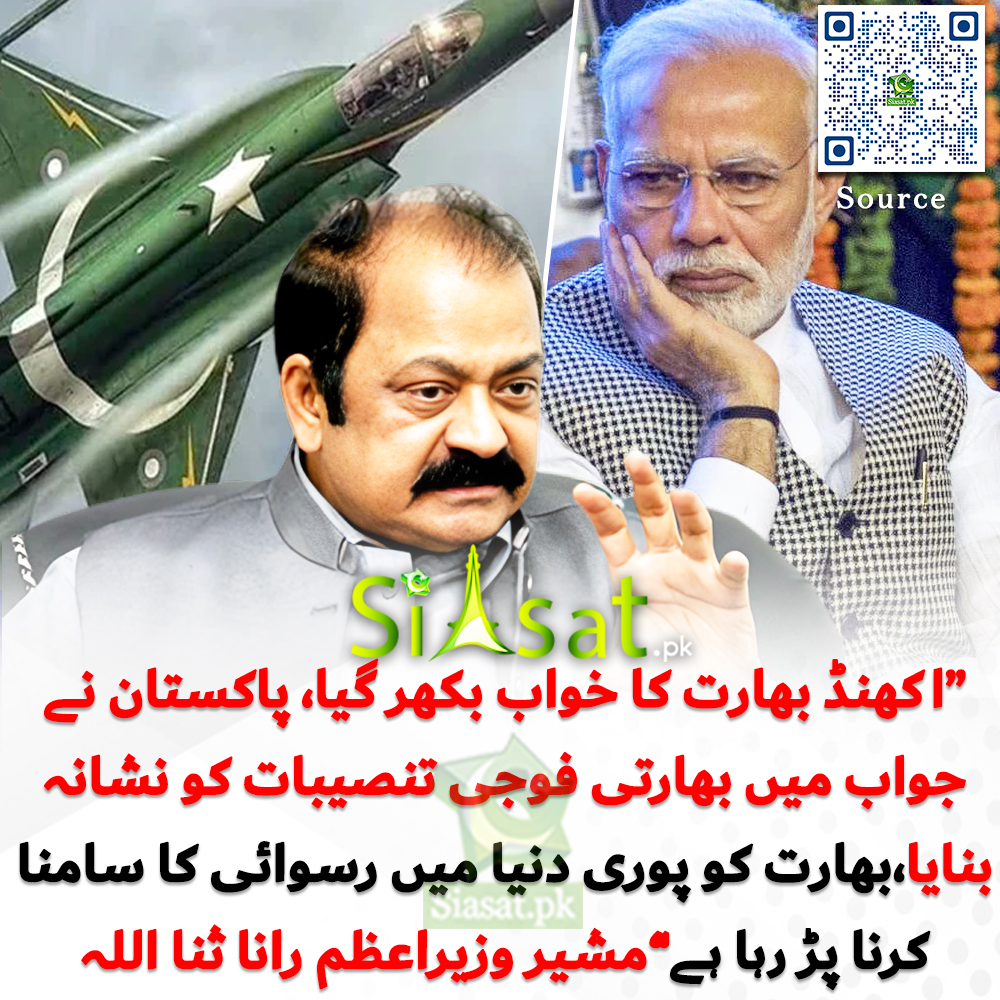canadian
Chief Minister (5k+ posts)
Will Saudi Arabia Change Peacefully?By Riaz Haq
CA
There are some recent signs that the Saudi government is moving toward broader social reform by beginning to create new mutawa-free spaces within the Kingdom where the rules are different. King Abdullah University of Science and Technology (KAUST) is one such space.
CA
Saudi society has long been dominated by the overzealous religious police, known as mutawa or mutaween, who strictly enforce the Saudi version of the Islamic Sharia Laws. The most visible manifestations of such enforcement include the almost total gender segregation, conservative dress code in public, and interruption of business for prayers five times a day.
There are some recent signs that the Saudi government is moving toward broader social reform by beginning to create new mutawa-free spaces within the Kingdom where the rules are different. King Abdullah University of Science and Technology (KAUST) is one such space.
Not only is the university co-educational, it has no dress code, nor does it allow the mutaween to enforce their rules. By offering greater freedom, the university is attempting to attract the best and the brightest academics, researchers and students from around the globe to create a world-class institution.
This is how the University describes itself: "The principles of academic freedom ensure that faculty members and researchers may conduct research and publish the results without undue hindrance or control. As an international university with many partners, KAUST recognizes the importance of academic freedom and the challenges presented by taking account of the various intellectual property regimes in the home countries of KAUST partner institutions."
IBM is one of the many international partners of KAUST. According to Businessweek, KAUST agreed to buy an IBM supercomputer, which is an essential tool in the research projects that IBM and the Saudis are targeting for their first collaboration. Among other things, the two teams will collaborate on a study of the nearby Red Sea, which they believe will help improve oil and mineral exploration. "[The supercomputer] is a magnet for smart people, and it makes it possible for us to solve big problems," says Majid F. Al-Ghaslan, KAUST's interim chief information officer.
Not content with KAUST to spur change, the Saudi ruler King Abdullah is now pushing the creation of four new special cities, according to the New York Times.
The first of these four cities is King Abdullah Economic City-KAEC (pronounced "cake"), a 65-square-mile development along the Red Sea. With a projected population of two million, the city is a Middle Eastern version of the special economic zones that have flourished in places like China.
Here is how the New York Times describes the implications of the planned Saudi effort:
If the plan works, at best it would transform Saudi Arabia into a technologically advanced society controlled by a slightly more tolerant religious autocracy. Or it could provoke militant violence and government crackdowns. What they are trying to do is very difficult, said Bernard Haykel, a professor of Near Eastern studies at Princeton University who has written extensively on Saudi Arabia. Someone telling you to go pray that in-your-face religion thats not going to be permitted in these cities. Its a more ecumenical Islam. But its a slippery slope. Once you start, youve basically opened up the door to a certain degree of diversity and tolerance.
KAEC is expected to be followed by three other cities: Knowledge Economic City near Medina, the second holiest city for Muslims; Prince Abdulaziz bin Mousaed Economic City, 450 miles north of Riyadh, which will focus on agribusiness; and Jazan Economic City, proposed to create industrial jobs for Saudis living near the border with Yemen, where al Qaeda is believed to be very active.
The fact that Saudi leaders recognize the need to change was articulated recently by Sir William Charters Patey, the British ambassador in Riyadh until May 2010, in an interview with Arab News as follows: They accept that you cant just go on the same old way. Some of the assumptions that underpin Saudi Arabia ... may not be enough to see them into the future.
The Saudi rulers understand that oil could no longer be taken for granted. It currently accounts for 60 percent of GDP and 90 percent of revenue. Moreover, the countrys population is forecast to double over the next three decades and the Kingdom will need to generate income from other sources by then.
Patey said that the strategy, a sensible and pragmatic one, was to use the Kingdoms current energy advantage to diversify into industries that are energy intensive. Saudi Arabia, he said, had also embarked on an ambitious strategy of developing a knowledge-based economy.
Change will eventually come to Saudi Arabia, but many questions remain about the process. Can the Saudi rulers escape the inevitable backlash from the adherents of the extreme Wahabi ideology that they have exported to other Muslim nations such as Afghanistan, Pakistan and Yemen? Will there be a process of political liberalization to match social and economic reforms? What will be the pace of this change? Will such change come peacefully? Can the current Saudi government manage this transition without unleashing widespread instability in Saudi Arabia, the Middle East and the wider Islamic world? How will the Saudi Kingdom's Western allies and its neighbors react to such instability?
It's hard for any one, including the Saudis, to answer these and other similar questions now. The only thing that can be said with any certainty at this time is that the change is inevitable, and the face of the Middle East and Islamic world will change dramatically by the end of the 21st century. (www.pakistanlink.com**
IBM is one of the many international partners of KAUST. According to Businessweek, KAUST agreed to buy an IBM supercomputer, which is an essential tool in the research projects that IBM and the Saudis are targeting for their first collaboration. Among other things, the two teams will collaborate on a study of the nearby Red Sea, which they believe will help improve oil and mineral exploration. "[The supercomputer] is a magnet for smart people, and it makes it possible for us to solve big problems," says Majid F. Al-Ghaslan, KAUST's interim chief information officer.
Not content with KAUST to spur change, the Saudi ruler King Abdullah is now pushing the creation of four new special cities, according to the New York Times.
The first of these four cities is King Abdullah Economic City-KAEC (pronounced "cake"), a 65-square-mile development along the Red Sea. With a projected population of two million, the city is a Middle Eastern version of the special economic zones that have flourished in places like China.
Here is how the New York Times describes the implications of the planned Saudi effort:
If the plan works, at best it would transform Saudi Arabia into a technologically advanced society controlled by a slightly more tolerant religious autocracy. Or it could provoke militant violence and government crackdowns. What they are trying to do is very difficult, said Bernard Haykel, a professor of Near Eastern studies at Princeton University who has written extensively on Saudi Arabia. Someone telling you to go pray that in-your-face religion thats not going to be permitted in these cities. Its a more ecumenical Islam. But its a slippery slope. Once you start, youve basically opened up the door to a certain degree of diversity and tolerance.
KAEC is expected to be followed by three other cities: Knowledge Economic City near Medina, the second holiest city for Muslims; Prince Abdulaziz bin Mousaed Economic City, 450 miles north of Riyadh, which will focus on agribusiness; and Jazan Economic City, proposed to create industrial jobs for Saudis living near the border with Yemen, where al Qaeda is believed to be very active.
The fact that Saudi leaders recognize the need to change was articulated recently by Sir William Charters Patey, the British ambassador in Riyadh until May 2010, in an interview with Arab News as follows: They accept that you cant just go on the same old way. Some of the assumptions that underpin Saudi Arabia ... may not be enough to see them into the future.
The Saudi rulers understand that oil could no longer be taken for granted. It currently accounts for 60 percent of GDP and 90 percent of revenue. Moreover, the countrys population is forecast to double over the next three decades and the Kingdom will need to generate income from other sources by then.
Patey said that the strategy, a sensible and pragmatic one, was to use the Kingdoms current energy advantage to diversify into industries that are energy intensive. Saudi Arabia, he said, had also embarked on an ambitious strategy of developing a knowledge-based economy.
Change will eventually come to Saudi Arabia, but many questions remain about the process. Can the Saudi rulers escape the inevitable backlash from the adherents of the extreme Wahabi ideology that they have exported to other Muslim nations such as Afghanistan, Pakistan and Yemen? Will there be a process of political liberalization to match social and economic reforms? What will be the pace of this change? Will such change come peacefully? Can the current Saudi government manage this transition without unleashing widespread instability in Saudi Arabia, the Middle East and the wider Islamic world? How will the Saudi Kingdom's Western allies and its neighbors react to such instability?
It's hard for any one, including the Saudis, to answer these and other similar questions now. The only thing that can be said with any certainty at this time is that the change is inevitable, and the face of the Middle East and Islamic world will change dramatically by the end of the 21st century. (www.pakistanlink.com**

